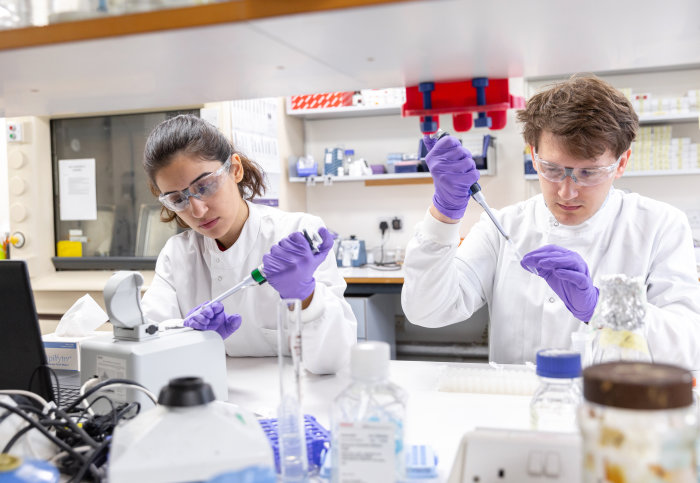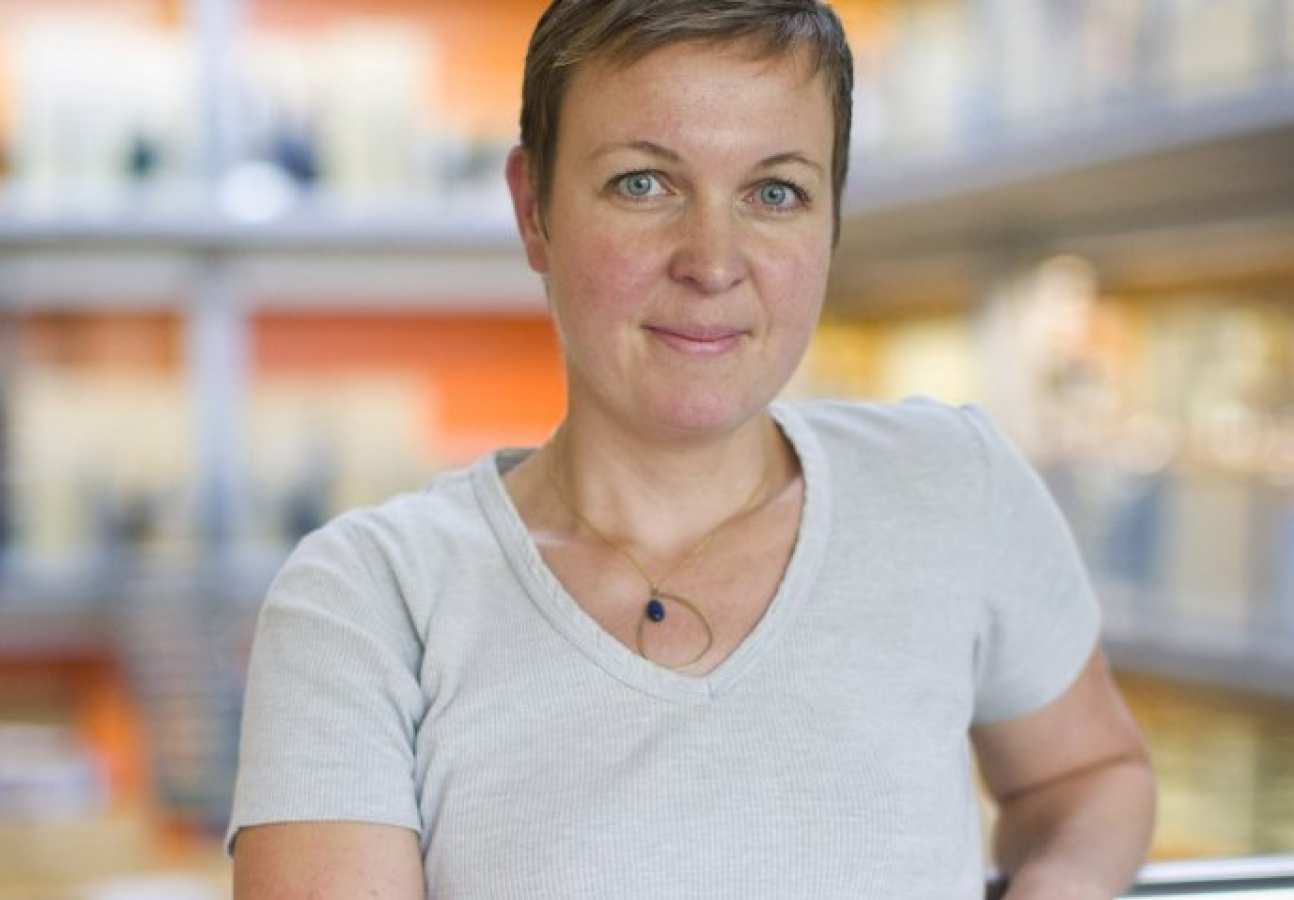MSc virologists explore infections and cell biology in new virtual laboratory

With the College moving to remote learning due to the outbreak of COVID-19, staff and students are having to get creative with lab access
As the College continues remote learning, MSc Molecular Biology & Pathology of Viruses students are trialling remote research in a 'virtual lab'.
Students and staff in the Department of Infectious Disease are exploring new formats of teaching and training in research techniques over the course of the summer, while laboratory access continues to be limited.
By offering a 'virtual lab' the programme team hope to equip students with the experience and skills in practical lab techniques, data handling, interpretation, and critical evaluation.
The 'virtual, remote research projects' will be trialled for a cohort of students over the remaining five months of the 'Laboratory Based Research Project' - the final module on the MSc programme. The emphasis of this delivery model is on research techniques and research practice, rather than other interactive learning experiences offered in literature or systematic reviews.
 Reflecting on the prospect of virtual labs for research training, Dr Sophie Rutschmann, Academic Lead for Postgraduate Education in the Faculty of Medicine, said: "Now more than ever the world needs experts in the medical field to tackle current and future global challenges. This means that lab work cannot simply 'pause', but needs to continue to train our students to become the future generation of scientists."
Reflecting on the prospect of virtual labs for research training, Dr Sophie Rutschmann, Academic Lead for Postgraduate Education in the Faculty of Medicine, said: "Now more than ever the world needs experts in the medical field to tackle current and future global challenges. This means that lab work cannot simply 'pause', but needs to continue to train our students to become the future generation of scientists."
"We are making plans to deliver programmes in a number of ways, dependent on progress in the fight against COVID-19. Through campus-based, remote and online offerings we look forward to providing current and new students fresh perspectives in their chosen disciplines."
Ready for the real lab
"...by these routes, our students can gain a thorough training in the conduct, methodology and critical thinking involved in research activity and become very well equipped for the next phase of their careers”. Professor Peter O'Hare Chair in Virology
Delivering engaging and impactful research projects without easy access to a laboratory is a challenge. Students' projects would always have taken place through conversation and supervision, including technical training, application of techniques in the lab, proper construction and design of experiments, and students' interpretation and presentation of data.
This practical experience of learning in a physical lab setting is a 'gold standard', according to Dr Rutschmann and colleagues. Yet, through a virtual lab the programme team will create an environment where students gain the skills needed for working in a real lab.
After being provided with direct, online training from research group leaders, and setting their key objectives, students are expected to:
- Tackle a series of research technique-oriented assignments.
- Investigate the theory and practice, the pros and cons of alternative techniques to answer the research objective; write a thorough report on those techniques; and interpret raw data provided by their supervisor.
- Discuss their findings with their supervisor and decide whether they will attempt new experiments with the same technique, or advance to another question within the overall progressive objectives and then thoroughly research any new techniques required to address that question. The process would be iterative, with guidance by scheduled and ad-hoc remote dialogue.
A greater sense of independence
 Chair in Virology, and the originator of the idea of a 'virtual lab' for the programme, Professor Peter O'Hare, said: "While certain types of research lends itself quite well to remote delivery, wet-lab based research work of the sort we do is practically impossible to replicate online.
Chair in Virology, and the originator of the idea of a 'virtual lab' for the programme, Professor Peter O'Hare, said: "While certain types of research lends itself quite well to remote delivery, wet-lab based research work of the sort we do is practically impossible to replicate online.
"However by these routes, our students can gain a thorough training in the conduct, methodology and critical thinking involved in research activity and become very well equipped for the next phase of their careers”.
Complementary to this supportive environment research group leaders do also want to emphasise the benefits of independent learning, and participants having confidence in their own abilities. Students will still be expected to investigate research techniques independently and work closely with staff to recognise when they should move onto their next assignment.
Want to study with us?
Find out more on our Department of Infectious Disease page.
The College's Graduate School is at the centre of the postgraduate community and provides details on what studying at Imperial is like.
Current and prospective students can view a wide selection of answers to frequently asked questions on the College's regularly updated COVID-19 webpages.
Article text (excluding photos or graphics) © Imperial College London.
Photos and graphics subject to third party copyright used with permission or © Imperial College London.
Reporter
Murray MacKay
Communications Division